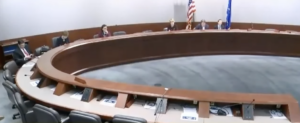
Bill allowing 24-hour storage contract at time of towing advances in Connecticut
By onInsurance | Legal
A Connecticut legislative committee has approved a proposed bill that would allow tow truck operators to require vehicle owners to sign a contract for up to 24 hours of storage after an accident.
The legislation, Senate Bill 332, now goes to the full General Assembly for consideration.
The Transportation Committee approved the bill in a 25-10 roll call vote on March 24, although at least two committee members agreed that the language will need more work when it reaches the assembly floor.
Proponents, including insurance industry representatives, said the bill was designed to protect consumers from being coerced into signing a contract as a condition of getting their vehicle towed.
One attorney spoke against the bill during a March 9 public hearing, asserting that it would have the effect of giving insurance companies 24 hours in which to pressure owners to bring their vehicle to one of the insurer’s direct repair program (DRP) facilities.
The pertinent section of SB 332, which proposed changes underlined in the original, reads:
“No licensee shall require the owner to sign a contract for the repair or for more than twenty-four hours of storage of such owner’s damaged vehicle as part of the towing consideration or to sign an order for the repair of, or authorization for [estimate] estimating repairs to such vehicle, until the tow job has been completed. No licensee shall tow a vehicle in such a negligent manner as to cause further damage to the vehicle being towed.”
Brooke Foley, general counsel for the Insurance Association of Connecticut (IAC), said the organization is requesting a change in the language of SB 332 “to prohibit a tow vendor from requesting a vehicle owner to sign anything, whether a consent to tow or a repair order, at the scene of an accident or within 24 hours of an accident.”
Foley said it’s “common” for collision repair shops, under such contracts, “to begin repairs on a vehicle in many cases that’s an obvious total loss. Frequently, the repairs include scans which are completely unnecessary.”
In opposition, attorney Peter Bowman called the bill “a blatant attempt by the insurance industry to circumvent the anti-steering law that has been on the books for decades in Connecticut.”
“What the insurance companies, I think, are trying to do is enable them a 24-hour window for them to dive into this situation, get in contact with their insured, the consumer, and try to convince that consumer to move the vehicle to a facility that will be more beneficial to them, as opposed to beneficial to the consumer,” he said. “And that’s really the only situation I can see. There’s no benefit to the public, there’s no benefit to safety.”
The same objection was raised to a similar bill, S.B. 921, filed last year. That bill failed to make it out of committee.
“SB 921 appears to have been created so that the insurance companies can direct or steer the repair of the vehicle to one of the shops that they do business with,” the Towing and Recovery Professionals of Connecticut wrote in opposition. “Not only is this in direct violation of the steering Statute (CGS 38a-354) but it attempts to introduce control over the customer’s rights to freely choose a place of repair and store their motor vehicle while the repair is taking place.”
More information
Claim of steering raised in proposed Connecticut towing legislation
Images
Featured image: Some members of the joint Transportation Committee meet in person at the Connecticut State House on March 24. Many other legislators joined the meeting remotely. (Screen capture via YouTube)
